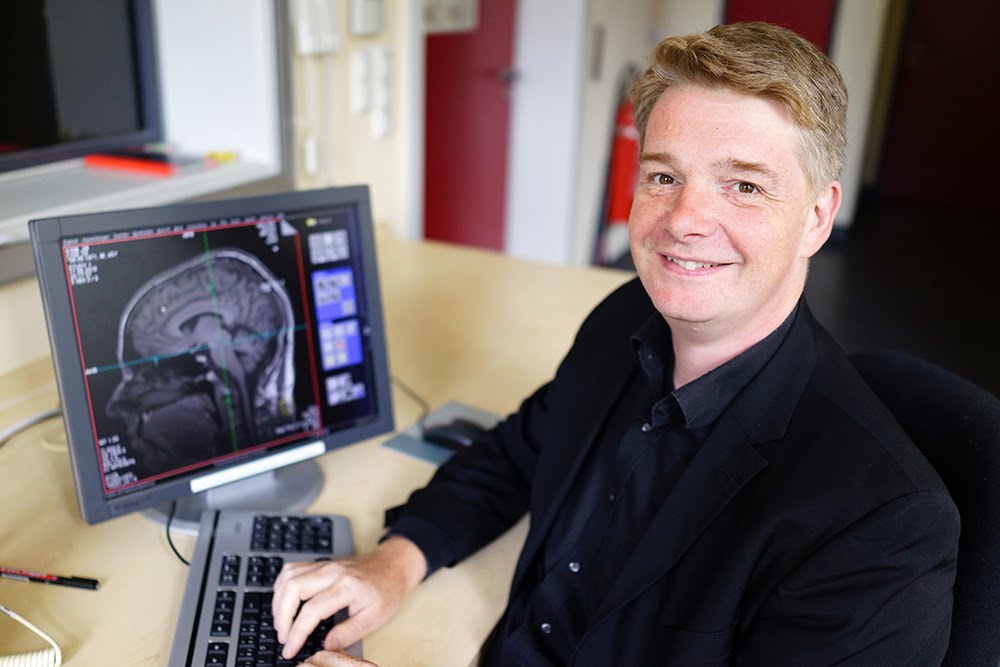
Time & Date: 31.01.2019
5-7 ct
Room 47.0.501 (Teaching block WWP)
Universität West
Albert-Einstein-Allee 47
89081 Ulm
Links:
Cognitive Systems and Human-Computer Interaction
Cognitive Systems M.Sc.
Abstract. When humans choose freely between different alternative actions, their choices are often predictable by prior brain signals. Using functional magnetic resonance imaging we found that classifiers can be used to predict the outcome of choices several seconds before a person believes to be making up their mind. This holds not only for simple movement choices, but also for complex cognitive actions. Using shifted classification analyses we found that early choice-predictive information can be dissociated from information related to the previous trial. Furthermore, during the early phase with choice-predictive information the default mode network was still active in the participants' brains. This potentially suggests that the prediction occured while they were not actively thinking about their upcoming choices. An interesting question is whether the onset of the choice-predictive brain signals constitutes a point of no return beyond which participants cannot avoid making a decision. We investigated this using real-time EEG classification of the readiness-potential. We found that people can override choice-predictive brain signals until a very late stage of processing. Taken together, our results suggest that choice-predictive brain signals are present, but that participants can control the outcome of a decision until a very late stage.
Bio. John-Dylan Haynes obtained his Diploma in Psychology in 1997 and his PhD in Biology in 2003 from the University of Bremen. This was followed by postdoctoral research positions at the University of Plymouth, the Otto-von-Guericke-University Magdeburg and the Wellcome Center for Imaging Neuroscience at the University College London. In 2005 he started his own research group at the Max Planck Institute for Human Cognitive and Brain Sciences in Leipzig. In 2006 he became Professor for Theory and Analysis of Large Scale Brain Signals at the Charité - Universitätsmedizin Berlin and at the Bernstein Center for Computational Neuroscience Berlin. Since 2009 he is Founding Director of the the Berlin Center for Advanced Neuroimaging (BCAN).

Time & Date: 31.01.2019
5-7 ct
Room 47.0.501 (Teaching block WWP)
Universität West
Albert-Einstein-Allee 47
89081 Ulm
Links:
Cognitive Systems and Human-Computer Interaction
Cognitive Systems M.Sc.
In unserem Onlineangebot sind Daten und Dienstleistungen von Fremdanbietern integriert. YouTube und Vimeo benutzen Tracking-Technologien, um Ihre Daten für eigene Zwecke zu verarbeiten und mit anderen Daten zusammenzuführen. Details finden Sie in unserer Datenschutzerklärung. Mit Ihrer Auswahl willigen Sie ggf. in die Verarbeitung Ihrer Daten zu den jeweiligen Zwecken ein. Die Einwilligung ist freiwillig, für die Nutzung des Onlineangebotes nicht erforderlich und kann jederzeit durch Aufruf des Consent Tools widerrufen werden.
oder
oder
Notwendige Cookies
Anbieter: in2code GmbH, Kunstmühlstraße 12a, 83026 Rosenheim, Deutschland
Externe Video Inhalte
Anbieter: in2code GmbH, Kunstmühlstraße 12a, 83026 Rosenheim, Deutschland
Chatbot Assistent
Anbieter: Kauz GmbH
verarbeitet durch: International Office der Universität Ulm, Helmholtzstraße 16, 89081 Ulm, Deutschland